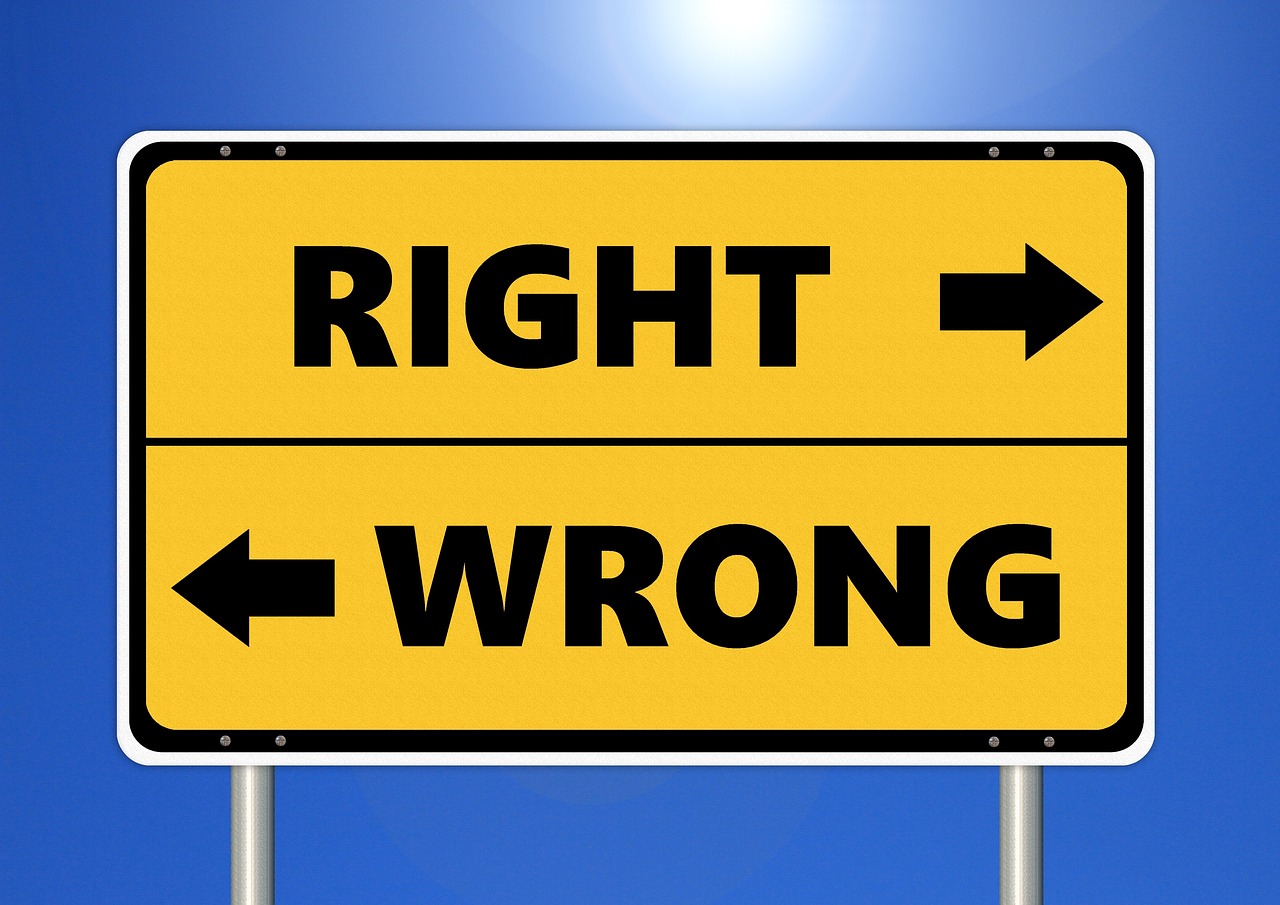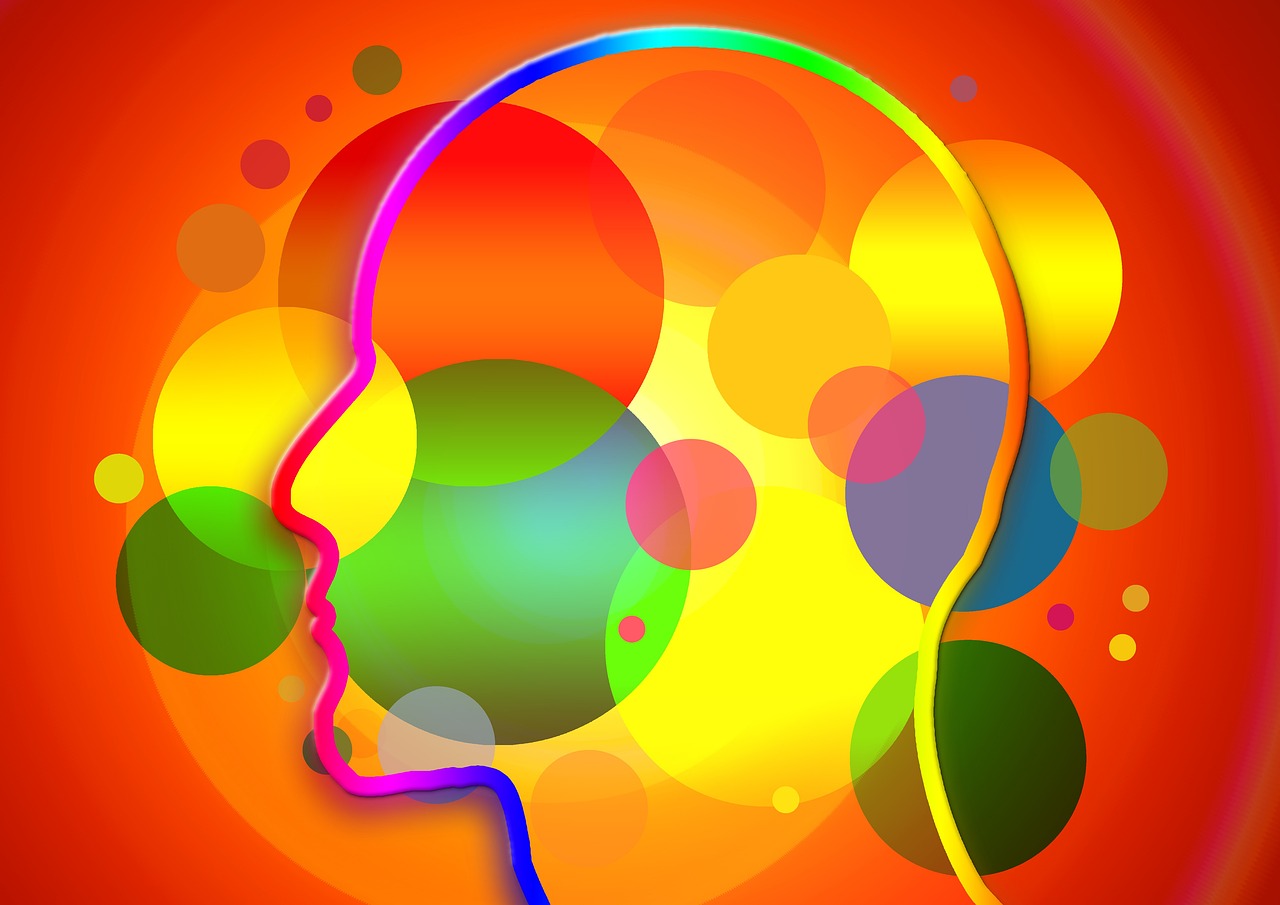Are There Universal Morals across Cultures?
Have you ever wondered if there are universal morals that bind us all together, no matter where we come from? This question has intrigued philosophers, sociologists, and everyday people for centuries. The idea of universal morality suggests that certain ethical principles are inherent to human existence, transcending cultural boundaries. Imagine a world where everyone shares the same moral compass—where honesty, kindness, and justice are valued equally across all societies. Sounds ideal, right? But is it truly the case?
To explore this concept, we need to dive into the essence of morality itself. Morality can be seen as a set of guidelines that help us navigate the complexities of human interaction. These guidelines often dictate how we treat one another, what we deem as right or wrong, and ultimately shape our societies. However, these moral codes can vary dramatically from one culture to another. For instance, while some cultures may prioritize individual rights, others might emphasize community and collective well-being. This raises an important question: are these differing moral principles simply reflections of cultural context, or do they point to something deeper?
As we embark on this journey, it’s essential to consider both sides of the argument. On one hand, proponents of universal morality argue that certain ethical values, such as the prohibition against murder or the importance of honesty, are recognized across various cultures. They believe that these shared values stem from our common humanity. On the other hand, cultural relativists contend that morals are not universal but are instead shaped by the unique histories, traditions, and social norms of each society. They argue that what is considered moral in one culture might be viewed as immoral in another, highlighting the rich tapestry of human experience.
In order to better understand this complex issue, we must also look at how morality has evolved over time. Historical perspectives reveal that moral frameworks have been influenced by a myriad of factors, including religion, philosophy, and social changes. For example, many religions provide a moral code that followers are expected to adhere to, which can create a sense of shared ethics among believers. Yet, different faiths often have conflicting moral teachings, leading to further questions about the universality of morals.
To illustrate this point, let’s take a closer look at the influence of religion on morality. Different religions offer unique perspectives on ethical behavior. For instance, Christianity emphasizes love and forgiveness, while Buddhism promotes compassion and mindfulness. Despite these differences, some core values such as empathy and justice can be found across many faiths. This could suggest that while the expressions of morality may differ, the underlying principles might be more universally shared than we realize.
Furthermore, various philosophical theories, such as utilitarianism and deontology, provide frameworks for understanding morality. Utilitarianism focuses on the outcomes of actions, advocating for the greatest good for the greatest number, while deontology emphasizes duties and rules. These theories often support the notion of universal morality, but they also challenge it by highlighting the complexities of ethical decision-making. If morality were truly universal, wouldn’t it be simpler to determine what is right or wrong?
In conclusion, the question of whether universal morals exist across cultures is both fascinating and complex. As we continue to explore this topic, we encounter case studies that reveal both commonalities and differences in moral beliefs around the world. Ultimately, understanding the interplay between cultural context and universal ethics may help us navigate our increasingly interconnected world, fostering greater empathy and respect among diverse societies.
- What are universal morals? Universal morals are ethical principles believed to be applicable to all humans, regardless of cultural background.
- How does cultural relativism differ from universal morality? Cultural relativism posits that moral codes are shaped by cultural contexts, while universal morality suggests that some ethical principles are shared across all cultures.
- Can empathy lead to universal moral standards? Yes, empathy is often seen as a foundation for moral behavior, and it can influence moral judgments that transcend cultural boundaries.
- Are there any challenges to the concept of universal morality? Yes, significant challenges include cultural diversity, conflicting ethical beliefs, and the subjective nature of moral interpretations.

The Concept of Universal Morality
When we think about universal morality, we’re diving into a fascinating pool of ideas that suggest certain ethical principles are relevant to everyone, no matter where they come from. Imagine standing at the crossroads of humanity, where different cultures meet, and finding that, despite our diverse backgrounds, we might share some fundamental beliefs about right and wrong. This is the essence of universal morality. It raises questions like: Are there ethical truths that apply to all people, or is morality merely a reflection of cultural norms? The significance of this concept stretches far beyond academic discussions; it influences international relations, human rights, and even personal interactions.
Philosophers have long debated the existence of universal morals, often contrasting them with the idea of cultural relativism. Universal morality posits that certain values—such as justice, honesty, and respect for life—are inherent to all human beings. These principles, they argue, transcend cultural boundaries and can be recognized universally. On the other hand, cultural relativism suggests that what is considered moral can vary dramatically from one culture to another, shaped by local customs, traditions, and societal norms. This dichotomy leads us to ponder: can we truly claim any moral principle as universal, or are we simply projecting our own beliefs onto others?
One of the most compelling arguments for universal morality comes from the shared human experience. Regardless of where we are from, we all experience emotions like love, fear, and grief. These feelings can lead to similar moral responses. For instance, most cultures condemn murder, not just because of legal implications, but due to a shared understanding of the value of human life. This commonality suggests that there are moral instincts deeply embedded in our humanity. However, the challenge lies in recognizing that while some principles may appear universal, their interpretations and applications can be vastly different.
To better illustrate this concept, consider the following table that highlights some commonly accepted moral principles across various cultures:
| Principle | Western Cultures | Eastern Cultures | African Cultures |
|---|---|---|---|
| Respect for Life | Generally upheld, with strong legal systems against murder. | Valued, often intertwined with religious beliefs. | Highly regarded, with communal implications in many societies. |
| Honesty | Promoted as a virtue; dishonesty often leads to social ostracism. | Emphasized, but contextually interpreted within relationships. | Critical for maintaining trust within the community. |
| Justice | Legal systems in place to uphold justice. | Often tied to concepts of balance and harmony. | Community-based approaches to justice are common. |
While this table shows some overlaps, it also highlights the nuances in how these principles are understood and enacted in different cultures. It’s a reminder that while we may agree on certain moral foundations, the path to upholding them can vary widely. So, could there be a universally accepted moral code? Perhaps, but it would need to be flexible enough to accommodate the rich tapestry of human experience.
In conclusion, the concept of universal morality is both intriguing and complex. It beckons us to explore our shared humanity while acknowledging the diverse ways in which we interpret moral principles. As we continue to engage in discussions about ethics, it’s essential to keep an open mind and a willingness to learn from one another. After all, navigating the moral landscape of our world requires not just understanding but also empathy.

Cultural Relativism Explained
Cultural relativism is a fascinating concept that suggests our morals and ethical standards are not universal but rather shaped by the unique contexts of our cultures. Imagine living in a world where every society has its own set of rules, much like different sports have different regulations. Just as a soccer player must adhere to the rules of the game, individuals in various cultures must follow the moral codes established by their societies. This perspective challenges the notion that there exists a single, absolute moral truth applicable to all humanity.
At its core, cultural relativism argues that what is deemed "right" or "wrong" can vary drastically from one culture to another. For instance, practices such as polygamy or arranged marriages might be accepted in some cultures while being frowned upon in others. This raises a critical question: if morality is so fluid, how can we establish any common ground? While cultural relativism encourages an appreciation for diversity, it also complicates discussions about human rights and ethical standards on a global scale.
One of the key implications of cultural relativism is that it promotes tolerance and understanding. By recognizing that different cultures have their own moral frameworks, we can foster a more inclusive dialogue. However, this can also lead to moral dilemmas. If a culture practices something that is harmful or unjust, should we intervene? This is where the tension between cultural relativism and universalism becomes palpable. Advocates of cultural relativism might argue that it is not our place to judge another culture's practices, while opponents might contend that certain fundamental rights should transcend cultural boundaries.
To better understand cultural relativism, let's consider a comparison table that highlights the differences between cultural relativism and universalism:
| Aspect | Cultural Relativism | Universalism |
|---|---|---|
| Definition | Moral codes are shaped by cultural contexts. | There are universal moral principles applicable to all humans. |
| Approach to Ethics | Emphasizes understanding and tolerance. | Promotes a common ethical framework. |
| Examples | Varied marriage practices, dietary restrictions. | Human rights, freedom of speech. |
| Challenges | Risk of justifying harmful practices. | Potential for cultural imperialism. |
In conclusion, cultural relativism provides a lens through which we can view the rich tapestry of human morality. It invites us to reflect on our own beliefs and consider how they are influenced by the societies we inhabit. However, it also poses significant challenges, especially when confronted with issues that invoke a sense of universal human rights. As we navigate this complex landscape, we must ask ourselves: can we find a balance between respecting cultural diversity and advocating for universal ethical standards?
- What is cultural relativism? Cultural relativism is the idea that moral codes are shaped by cultural contexts and that no single moral framework is universally applicable.
- How does cultural relativism affect human rights? Cultural relativism can complicate discussions about human rights, as it raises questions about whether certain practices should be challenged or respected based on cultural context.
- Can cultural relativism coexist with universalism? While both perspectives offer valuable insights, finding common ground requires careful dialogue and a willingness to understand differing viewpoints.

Historical Perspectives on Morality
The exploration of morality through historical perspectives reveals a fascinating tapestry woven from the threads of religion, philosophy, and societal evolution. These elements have not only shaped individual and collective moral frameworks but have also highlighted the ongoing debate between universal morals and culturally specific ethical standards. From ancient civilizations to modern societies, the conception of what is considered "right" or "wrong" has transformed dramatically, influenced by the prevailing ideologies and existential questions of each era.
In ancient times, moral codes were often dictated by religious beliefs. For instance, the Ten Commandments in Judeo-Christian traditions provided a foundational ethical framework that many still reference today. These commandments not only guided personal conduct but also served to unify communities under a common set of values. Similarly, in other cultures, such as those influenced by Hinduism and Buddhism, moral principles were embedded in spiritual teachings, emphasizing concepts like karma and dharma, which advocate for a moral life based on one's actions and duties.
As societies evolved, so did the philosophical underpinnings of morality. The ancient Greeks, particularly through the works of philosophers like Socrates, Plato, and Aristotle, began to question the nature of morality itself. They sought to understand not just what actions were deemed right or wrong, but why those judgments were made. This philosophical inquiry laid the groundwork for later ethical theories, such as utilitarianism and deontology, which continue to influence modern moral thought.
To illustrate the evolution of moral perspectives, consider the following table that outlines key historical milestones in moral philosophy:
| Era | Key Figures | Moral Concepts |
|---|---|---|
| Ancient Civilizations | Moses, Confucius | Divine Command Theory, Social Harmony |
| Classical Greece | Socrates, Plato, Aristotle | Virtue Ethics, Rationalism |
| Medieval Period | St. Augustine, St. Thomas Aquinas | Natural Law, Moral Absolutism |
| Modern Era | Kant, Mill | Deontological Ethics, Utilitarianism |
Furthermore, the Enlightenment period marked a significant shift in moral philosophy, as thinkers like Immanuel Kant introduced the idea of duty and moral imperatives, suggesting that morality could be derived from reason alone. This era also saw the rise of utilitarianism, championed by philosophers like John Stuart Mill, who argued that the morality of an action should be judged based on its consequences and the overall happiness it produces.
As we move into contemporary discussions on morality, it becomes clear that the historical context is crucial in understanding how various cultures approach ethical dilemmas. The interplay between religious teachings, philosophical inquiry, and societal norms has created a rich landscape where moral beliefs are continuously negotiated and redefined. Thus, while some principles may appear universal, they are often deeply rooted in specific cultural narratives that shape their interpretation and application.
In conclusion, the historical perspectives on morality serve as a reminder that our understanding of right and wrong is not static but rather a dynamic process influenced by a multitude of factors. As we delve deeper into the complexities of moral philosophy, we must remain open to the idea that while some values may resonate across cultures, others are intricately tied to the unique experiences and histories of specific societies.
- What are universal morals? Universal morals are ethical principles that are believed to apply to all humans, regardless of cultural context.
- How does cultural relativism challenge universal morality? Cultural relativism argues that moral codes are shaped by cultural contexts, suggesting that what is considered moral can vary significantly between societies.
- Can empathy lead to universal moral standards? Empathy may foster shared moral understandings, but cultural differences can influence how it is expressed and interpreted.
- What role does religion play in shaping morality? Religion has historically provided moral frameworks and guidelines, influencing ethical beliefs and practices across different cultures.

Influence of Religion on Morality
Religion has long been a cornerstone in shaping moral values across societies, acting as a guiding light for ethical behavior. Think of religion as a compass that helps individuals navigate the often murky waters of right and wrong. Different faiths offer unique perspectives on morality, often providing a framework that dictates what is deemed acceptable or unacceptable behavior. For instance, the Ten Commandments in Christianity serve as a moral foundation for many, while the Five Precepts in Buddhism lay out ethical guidelines that promote harmony and compassion.
These religious teachings can lead to a shared understanding of certain moral principles, such as the importance of honesty, kindness, and respect for others. However, the interpretation of these principles can vary significantly from one religion to another. For example, while many religions advocate for the sanctity of life, the application of this belief can differ—some may oppose euthanasia and abortion, while others may support them under certain conditions. This divergence raises the question: can we truly claim that there are universal morals when religious beliefs shape our understanding so profoundly?
Moreover, religion often intertwines with cultural practices, further complicating the landscape of morality. In some cultures, religious laws are enshrined in legal systems, making them not just moral guidelines but also societal norms. This relationship can lead to conflicts when individuals from different religious backgrounds interact. For example, consider the debate over marriage practices; while some cultures embrace polygamy, others strictly adhere to monogamous unions, each supported by their respective religious doctrines. This illustrates how moral beliefs are not only influenced by religion but also shaped by the cultural context in which they exist.
One fascinating aspect of this influence is how religion can foster a sense of community and belonging, which in turn reinforces moral behavior. When individuals share the same beliefs, they often feel a collective responsibility to uphold those values, creating a moral environment that encourages ethical conduct. This communal aspect can be a powerful motivator for individuals to act in accordance with their religious teachings, as deviating from these norms may lead to social ostracism or guilt.
However, it’s essential to recognize that not everyone subscribes to a religious belief system. Atheists and agnostics may derive their morals from secular philosophies or humanistic principles, arguing that empathy and reason can guide ethical behavior without the need for divine command. This raises an intriguing point: can moral principles be universal if they are rooted in varied sources of belief? The answer is complex and often subjective, depending on one’s perspective on the role of religion in moral development.
In summary, the influence of religion on morality is both profound and multifaceted. While it provides a framework for ethical behavior and fosters community, the diverse interpretations of religious teachings can lead to significant variations in moral beliefs across cultures. As we explore the interplay between religion and morality, it becomes clear that understanding these dynamics is crucial for navigating the global moral landscape.
- What role does religion play in shaping moral values?
Religion often serves as a guiding framework for ethical behavior, influencing individuals’ perceptions of right and wrong. - Can moral principles be universal if they are influenced by religion?
The universality of moral principles is debated, as different religions interpret ethical guidelines in varied ways. - How do cultural practices affect moral beliefs?
Cultural practices intertwined with religious beliefs can lead to differing interpretations of morality, creating a complex moral landscape.

Philosophical Theories of Morality
When we dive into the realm of morality, we encounter a rich tapestry of philosophical theories that attempt to explain what is right and wrong. These theories not only shape our understanding of ethics but also challenge our perceptions of universal morality. Among the most prominent theories are utilitarianism, deontology, and virtue ethics. Each of these frameworks offers a unique perspective on moral reasoning, helping us navigate the complex landscape of human behavior.
Utilitarianism, championed by philosophers like Jeremy Bentham and John Stuart Mill, posits that the morality of an action is determined by its consequences. In simple terms, the right action is the one that produces the greatest good for the greatest number. This theory encourages us to consider the impact of our actions on the well-being of others. However, critics argue that utilitarianism can justify morally questionable actions if they lead to a net positive outcome. For instance, if sacrificing one person could save many, a strict utilitarian might argue that such an action is morally permissible. This raises the question: can we truly measure the value of human life in such a utilitarian calculus?
On the other hand, deontology, associated with Immanuel Kant, asserts that morality is rooted in duty and adherence to rules. According to this perspective, certain actions are inherently right or wrong, regardless of their consequences. Kant emphasized the importance of treating individuals as ends in themselves, not merely as means to an end. This principle underlines the idea that there are moral absolutes—truths that apply universally across cultures. However, the rigidity of deontological ethics can lead to dilemmas where following a moral rule may result in harm or injustice. For example, if telling the truth would lead to someone's harm, should one still adhere to the principle of honesty?
Lastly, virtue ethics, rooted in the teachings of Aristotle, shifts the focus from rules or consequences to the character of the moral agent. According to this theory, morality is about cultivating virtuous traits, such as courage, temperance, and wisdom. The virtuous person acts rightly not because they follow rules or calculate outcomes but because they embody moral excellence. This approach encourages individuals to strive for personal growth and moral development. However, critics argue that virtue ethics can be subjective, as different cultures may have varying definitions of what constitutes a virtue.
In summary, these philosophical theories of morality—utilitarianism, deontology, and virtue ethics—offer diverse frameworks for understanding ethical behavior. They each contribute to the ongoing debate about universal morals, highlighting the complexities of human values across different cultures. As we navigate our ethical landscape, it’s essential to consider how these theories interact and influence our moral judgments.
As we ponder these philosophical insights, we must also ask ourselves: can a universal moral framework truly exist in a world rich with cultural diversity? The answer may lie in our ability to engage in meaningful dialogue and foster empathy across cultural boundaries.

Case Studies of Moral Principles
When we dive into the realm of moral principles across cultures, it’s like opening a treasure chest filled with diverse beliefs and practices. Each culture offers a unique perspective on what is considered right or wrong, and examining these case studies can illuminate both the common threads and stark differences in moral reasoning. For instance, let’s consider the concept of honor in different societies. In many Middle Eastern cultures, honor plays a pivotal role in social interactions and can dictate personal and family decisions. This is often seen in practices such as honor killings, where individuals may resort to extreme measures to protect their family’s reputation. In contrast, many Western societies prioritize individual rights and freedoms, viewing the protection of personal autonomy as paramount. This stark difference raises the question: can we find a universal moral principle that reconciles these contrasting views on honor?
Another fascinating case study can be found in the realm of charity and altruism. In many African cultures, communal living and support systems are integral to survival. The concept of Ubuntu, which emphasizes the interconnectedness of all individuals, suggests that one’s well-being is tied to the well-being of others. This moral framework fosters a sense of responsibility towards the community, where sharing resources is not just encouraged but expected. Conversely, in more individualistic cultures, such as those in North America, charity is often viewed through the lens of personal choice and voluntary action. Here, the moral obligation to help others may be less pronounced, leading to debates about the extent of social responsibility. These contrasting approaches to charity prompt us to consider whether there exists a universal moral imperative to aid those in need, or if such obligations are purely culturally constructed.
To further illustrate the diversity of moral principles, we can look at the practice of justice in different societies. In Indigenous cultures, restorative justice is often favored over punitive measures. This approach focuses on repairing harm and restoring relationships rather than simply punishing the offender. For example, in some Native American tribes, community circles are used to address grievances and involve all stakeholders in the healing process. In stark contrast, many Western legal systems prioritize retribution and deterrence, often leading to incarceration as a primary response to crime. This divergence raises a critical question: does the effectiveness of a moral principle like justice depend on cultural context, or can we identify a universal standard that champions rehabilitation over punishment?
As we analyze these case studies, it becomes clear that while certain moral principles may resonate across cultures, the interpretation and application of these principles can vary widely. The nuances of each culture shape its moral landscape, leading to a rich tapestry of ethical beliefs. By understanding these differences and similarities, we can better appreciate the complexity of moral reasoning and the ongoing debate about the existence of universal morals.
- What are universal morals?
Universal morals are ethical principles believed to apply to all humans, regardless of cultural background. - How does cultural relativism affect moral understanding?
Cultural relativism suggests that moral codes are shaped by cultural contexts, challenging the idea of universal morality. - Can empathy lead to universal ethical standards?
Empathy may bridge cultural divides, suggesting that emotional connections can foster shared moral understandings. - What challenges exist for universal morality?
Challenges include cultural diversity, conflicting ethical beliefs, and differing interpretations of moral principles.

The Role of Empathy in Morality
Empathy plays a pivotal role in shaping our moral compass. It’s that innate ability to understand and share the feelings of others, which often guides our decisions and actions. But have you ever wondered why empathy is so essential in moral reasoning? Imagine walking in someone else's shoes, feeling their pain, joy, or confusion. This emotional connection can lead to a deeper understanding of what is right or wrong, transcending cultural boundaries. When we empathize, we are more likely to act in ways that are considerate and just, creating a ripple effect of compassion and moral behavior.
Research has shown that empathy can significantly influence moral judgments. For instance, when faced with a moral dilemma, individuals who exhibit higher levels of empathy tend to make decisions that favor the well-being of others. This suggests that empathy is not just a personal trait but a crucial component of a functioning moral system. In many ways, it acts as a bridge connecting our individual experiences to a larger societal framework of ethics. By fostering empathy, we can cultivate a more harmonious world, where moral standards are not only understood but also felt on a deeper level.
However, the relationship between empathy and morality is not without its complexities. While empathy can lead to altruistic behavior, it can also result in biased moral decisions if we only empathize with those we identify with. For example, if we feel a stronger emotional connection to people from our own culture or community, we might prioritize their needs over those of others. This raises an intriguing question: Can empathy lead to universal moral standards, or does it reinforce cultural biases? To explore this further, let's consider how empathy manifests across different cultures and whether it can indeed create a shared moral understanding.
In various cultures, empathy is expressed in unique ways, influenced by social norms and values. For instance, in collectivist societies, empathy is often directed towards the community, emphasizing the importance of group harmony. In contrast, individualistic cultures may focus on personal relationships, leading to a different moral framework. Despite these differences, the underlying principle of empathy remains consistent: it encourages us to care for others. This suggests that while the expression of empathy may vary, its fundamental role in morality could be universally recognized.
To further illustrate the impact of empathy on moral behavior, let’s examine a few key points:
- Empathy fosters understanding: By putting ourselves in others' positions, we can better grasp their perspectives and needs.
- Empathy encourages altruism: When we empathize, we are more likely to help others, leading to positive social interactions.
- Empathy can challenge biases: Engaging with diverse perspectives can help us move beyond our cultural prejudices.
Ultimately, the role of empathy in morality is a double-edged sword. While it has the potential to unite us under a common ethical framework, it can also highlight the divides that exist between cultures. As we navigate this complex landscape, it becomes evident that fostering empathy is not just beneficial but essential in our quest for a more just and moral society.
- What is empathy? Empathy is the ability to understand and share the feelings of another person.
- How does empathy influence moral decisions? Empathy can lead to more compassionate and altruistic behavior, guiding individuals to make decisions that consider the well-being of others.
- Can empathy create universal moral standards? While empathy can foster shared understanding, it may also reinforce cultural biases, making the establishment of universal moral standards complex.
- Is empathy the same across all cultures? The expression of empathy can vary between cultures, influenced by different social norms and values, yet the fundamental principle remains similar.

Empathy Across Cultures
When we think about empathy, it often conjures up images of understanding and sharing the feelings of others. But did you know that the way empathy is expressed can vary dramatically across different cultures? It's like looking at a beautiful mosaic; each piece is unique, yet together they create a stunning picture. In some cultures, empathy is openly displayed through physical affection and verbal affirmations, while in others, it may be expressed through actions rather than words. This divergence raises an intriguing question: can we pinpoint a universal expression of empathy that transcends cultural boundaries?
To explore this idea, let's consider how empathy manifests in various cultural contexts. For instance, in many Western societies, people often prioritize direct communication. They might use phrases like "I understand how you feel" to express their empathy. On the other hand, in some Asian cultures, empathy might be shown through actions such as providing help or support without overt verbal acknowledgment. This difference illustrates that while the underlying feeling of empathy is universal, its expression can be significantly shaped by cultural norms.
Research has shown that empathy can be influenced by cultural upbringing and socialization. For instance, children raised in collectivist cultures, where community and family are prioritized, often develop a stronger sense of empathy towards group members. They learn to value harmony and cooperation, leading to a more communal form of empathy. Conversely, in individualistic cultures, where personal achievements are emphasized, empathy may be more focused on personal relationships rather than broader community connections.
Furthermore, the role of language in shaping empathy cannot be overlooked. Different languages have unique words and phrases that convey feelings of empathy. For example, the Japanese term "omoiyari" encapsulates the idea of being considerate and anticipating the needs of others, which reflects a deep-seated cultural value of empathy. In contrast, English lacks a single word that fully captures this essence, which can sometimes lead to misunderstandings in cross-cultural communications.
To better understand how empathy operates across cultures, researchers have conducted studies that highlight both commonalities and differences. A recent study surveyed participants from various cultural backgrounds, asking them to respond to hypothetical scenarios involving moral dilemmas. Interestingly, while responses varied, many participants expressed similar feelings of distress when witnessing suffering, indicating that the emotional response to suffering might be a universal human trait.
In conclusion, while empathy is a universal emotion, its expression is undoubtedly influenced by cultural contexts. The way we show understanding and compassion can differ widely, shaped by our upbringing, language, and societal norms. As we navigate our increasingly interconnected world, recognizing these differences can foster greater understanding and harmony among diverse cultures. The challenge lies in appreciating these varied expressions of empathy while striving for a common ground that respects and honors each culture's unique contribution to our shared human experience.
- What is empathy? Empathy is the ability to understand and share the feelings of another person.
- Is empathy universal? While the feeling of empathy is universal, its expression can vary significantly across cultures.
- How does culture influence empathy? Culture shapes how individuals express empathy, including verbal communication, physical touch, and actions.
- Can empathy be learned? Yes, empathy can be cultivated through experiences, education, and social interactions.

Challenges to Universal Morality
When we delve into the idea of universal morality, we quickly realize that the concept is not as straightforward as it may seem. One of the most significant challenges is the sheer diversity of cultures around the world. Each culture has its own set of values, beliefs, and practices that shape its moral framework. For instance, what is considered morally acceptable in one society might be viewed as taboo in another. This raises the question: can there truly be a one-size-fits-all approach to morality?
Moreover, cultural relativism presents a compelling argument against universal morality. This theory suggests that moral codes are not only influenced by cultural contexts but are also deeply embedded in the history and traditions of a society. Take, for example, the varying attitudes towards issues like marriage, gender roles, and even justice. In some cultures, polygamy is accepted, while in others, monogamy is the norm. These differences challenge the idea that there are universal moral truths that apply to everyone, everywhere.
Another layer of complexity arises from the conflicting ethical beliefs that exist even within the same culture. For example, within a single society, individuals may hold vastly different opinions on ethical issues such as euthanasia, abortion, and capital punishment. These disagreements can lead to moral dilemmas where individuals struggle to find common ground. How do we reconcile these differences? Can we create a moral framework that respects individual beliefs while also promoting a sense of shared ethics?
Furthermore, the rapid pace of globalization has introduced new challenges to the idea of universal morality. As cultures interact and influence one another, the lines between moral beliefs can blur. This can lead to a phenomenon known as moral pluralism, where multiple moral perspectives coexist. While this diversity can enrich our understanding of ethics, it also complicates efforts to establish universal principles. We must ask ourselves: does globalization foster a greater understanding of shared morals, or does it create a cacophony of conflicting values?
To illustrate these challenges further, consider the following table that summarizes some key points:
| Challenge | Description |
|---|---|
| Diversity of Cultures | Different societies have unique moral frameworks shaped by their traditions and histories. |
| Cultural Relativism | Moral codes are influenced by cultural contexts, leading to varied interpretations of ethics. |
| Conflicting Ethical Beliefs | Disagreements within cultures on moral issues challenge the notion of a universal code. |
| Moral Pluralism | Globalization creates a mix of moral perspectives, complicating the establishment of universal ethics. |
In conclusion, while the idea of universal morality is appealing, it is fraught with challenges that cannot be ignored. The interplay between cultural diversity, relativism, and conflicting beliefs creates a complex landscape where moral truths are often subjective. As we navigate this intricate web, it becomes increasingly important to foster dialogue and understanding among different cultures, allowing us to appreciate the rich tapestry of human ethics while recognizing the limitations of a universal moral framework.
- What is universal morality? Universal morality refers to ethical principles believed to be applicable to all humans, regardless of culture.
- What is cultural relativism? Cultural relativism posits that moral codes are shaped by cultural contexts and vary from one society to another.
- Can there be a universal moral code? While some argue for universal morals, significant challenges such as cultural diversity and conflicting beliefs complicate this notion.
- How does globalization affect morality? Globalization can lead to moral pluralism, where multiple moral perspectives coexist, enriching or complicating ethical discussions.
Frequently Asked Questions
- What are universal morals?
Universal morals refer to ethical principles that are believed to apply to all humans, regardless of their cultural background. These morals are thought to transcend cultural boundaries and are often seen as fundamental truths about right and wrong.
- How does cultural relativism impact our understanding of morality?
Cultural relativism suggests that moral codes are shaped by the specific cultural context in which they exist. This means that what is considered morally right in one culture may be viewed differently in another, challenging the idea of universal morals.
- Can you give examples of universal morals?
Some commonly cited examples of universal morals include principles like honesty, fairness, and the prohibition of murder. However, interpretations of these morals can vary widely between cultures.
- What role does religion play in shaping moral values?
Religion has historically been a significant influence on moral values, often providing a framework for understanding right and wrong. Different faiths may promote similar ethical principles, contributing to the debate on whether universal morals exist.
- Are philosophical theories like utilitarianism supportive of universal morality?
Yes, philosophical theories such as utilitarianism and deontology often provide arguments for universal morality. Utilitarianism, for instance, promotes actions that maximize overall happiness, which can be seen as a universal principle.
- How does empathy relate to moral behavior?
Empathy is often viewed as a foundational element of moral behavior. It allows individuals to understand and share the feelings of others, potentially leading to more universal ethical standards as people connect emotionally across cultural divides.
- What challenges exist for the idea of universal morals?
Despite arguments for universal morals, challenges such as cultural diversity, conflicting ethical beliefs, and varying interpretations of moral principles complicate the discourse. These challenges highlight the complexity of establishing a universally accepted moral framework.



















